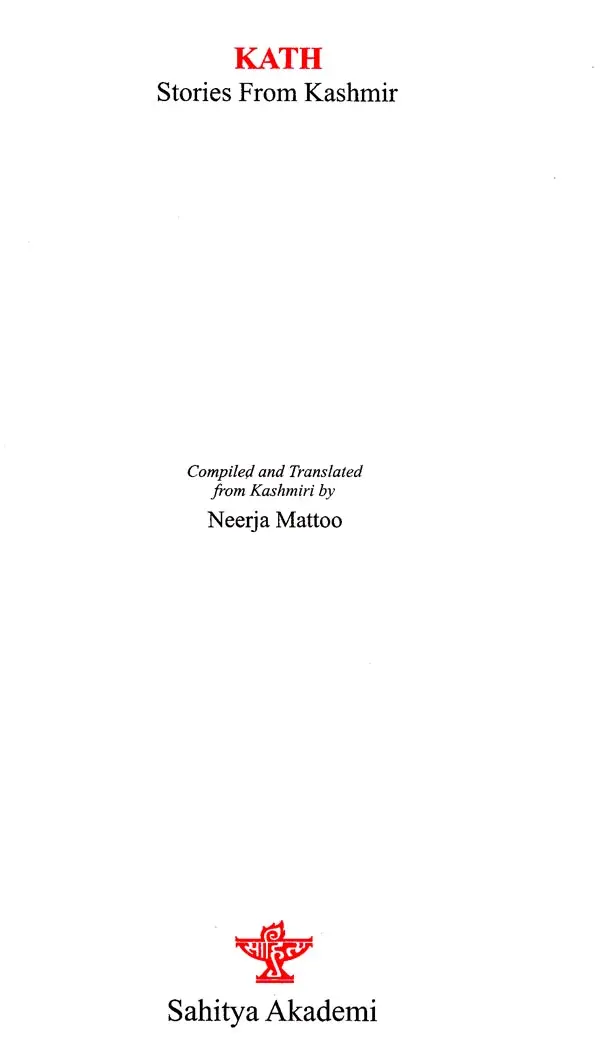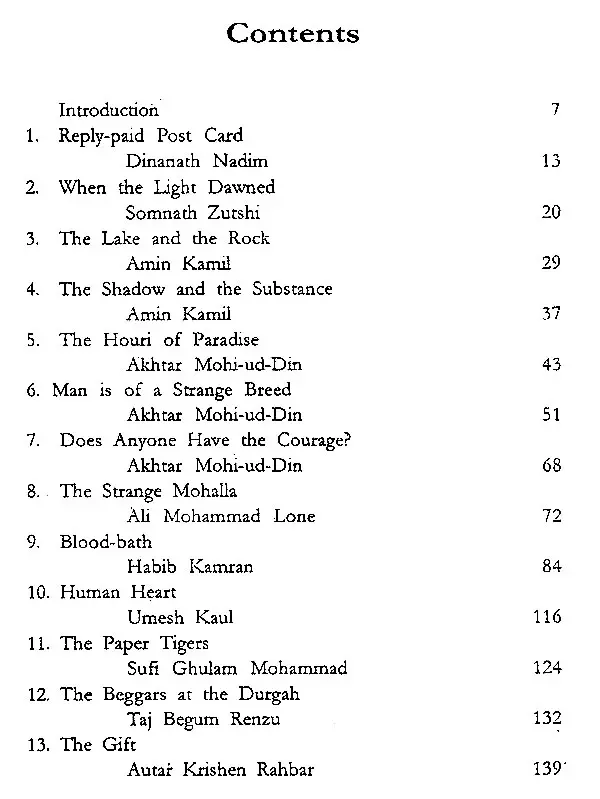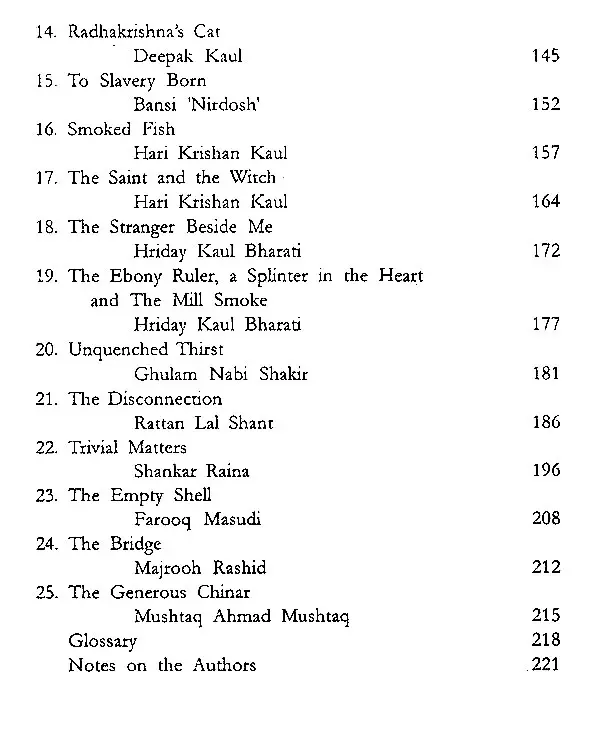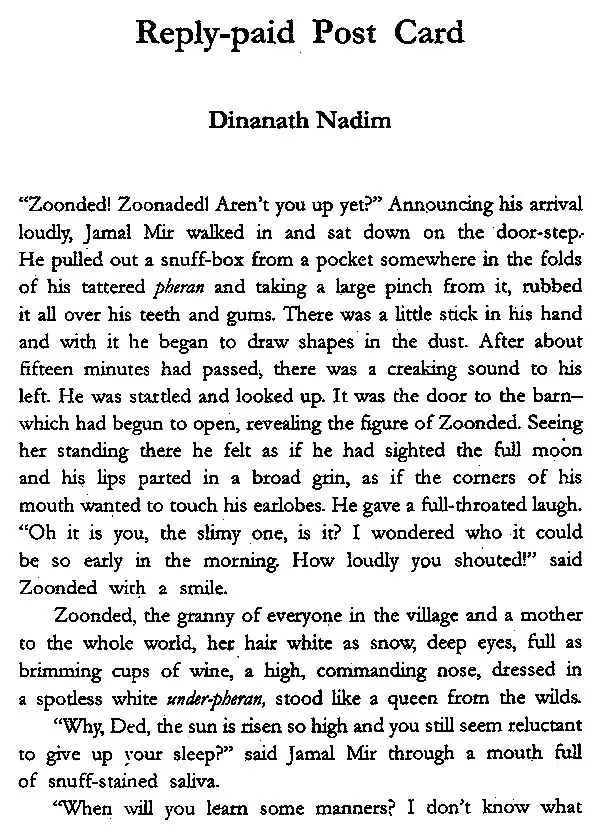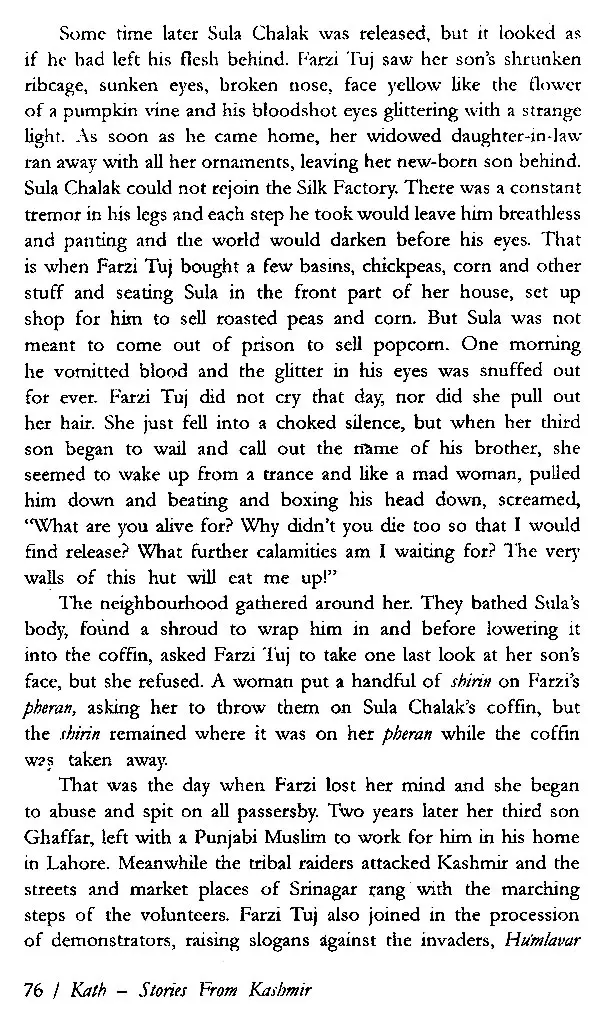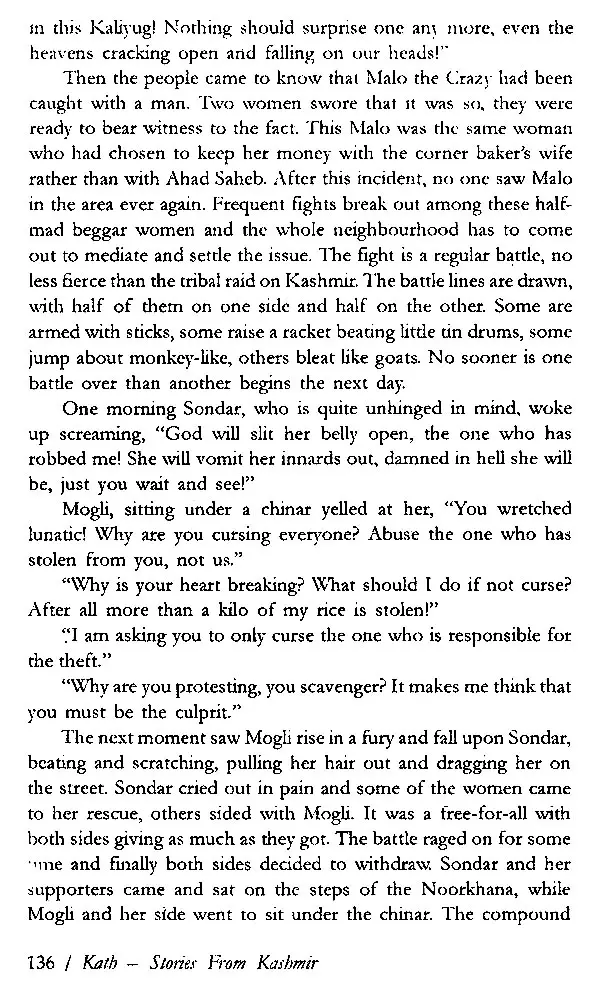
Kath Stories from Kashmir
Book Specification
| Item Code: | UAM554 |
| Author: | Neerja Mattoo |
| Publisher: | SAHITYA AKADEMI, DELHI |
| Language: | English |
| Edition: | 2017 |
| ISBN: | 9788126030590 |
| Pages: | 223 |
| Cover: | PAPERBACK |
| Other Details | 8.50 X 5.50 inch |
| Weight | 300 gm |
Book Description
Neerja Mattoo (b.1937) writes in English and translates from Kashmiri into English; was Professor and Head of the Department of English, Government College for Women, Srinagar. Some of her other important translated works include The Stranger Beside Me and Contemporary Kashmiri Short Stories. She is also the recipient of Senior Fellowship in 1997 for her work on Kashmiri women poets by the Ministry of HRD, Government of India and was also awarded a British Council Visitorship to the University of Oxford.
The genre of the short story is the youngest in Kashmiri literature, yet it has established itself as a significant one within the space. of the six decades of its existence. It seems that the century and a quarter that it took the European-American short story to develop, is condensed in its Kashmir version in these few decades. This collection attempts to record the journey of the Kashmiri short story from its tentative beginnings in the last years of the fortes to the present day, trying to give representation to all the major practitioners of the craft.
Reading these stories chronologically is like reading a history of Kashmir society as it evolved during these years. They are a record of the people's concerns, ranging from simple desires and confident hope for a better life to deeper anxieties, fears and growing frustrations at unkept promises and unfulfilled expectations. In fact the seeds of the discontent that has grown into the insurgency or the past couple of decades in Kashmir can all be found in the content of some of these short stories. The earlier writers all had a social conscience and, under the influence of the Progressive writers of India, believed that literature must have a commitment to become the voice of the masses. Hence their attempt to faithfully mirror the plight of the poor, the down-trodden and the destitute, in the hope that such depiction would stir the establishment to ameliorate their lot.
